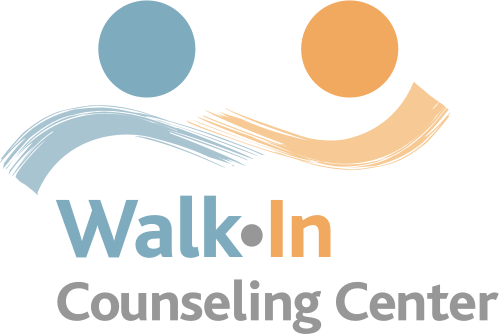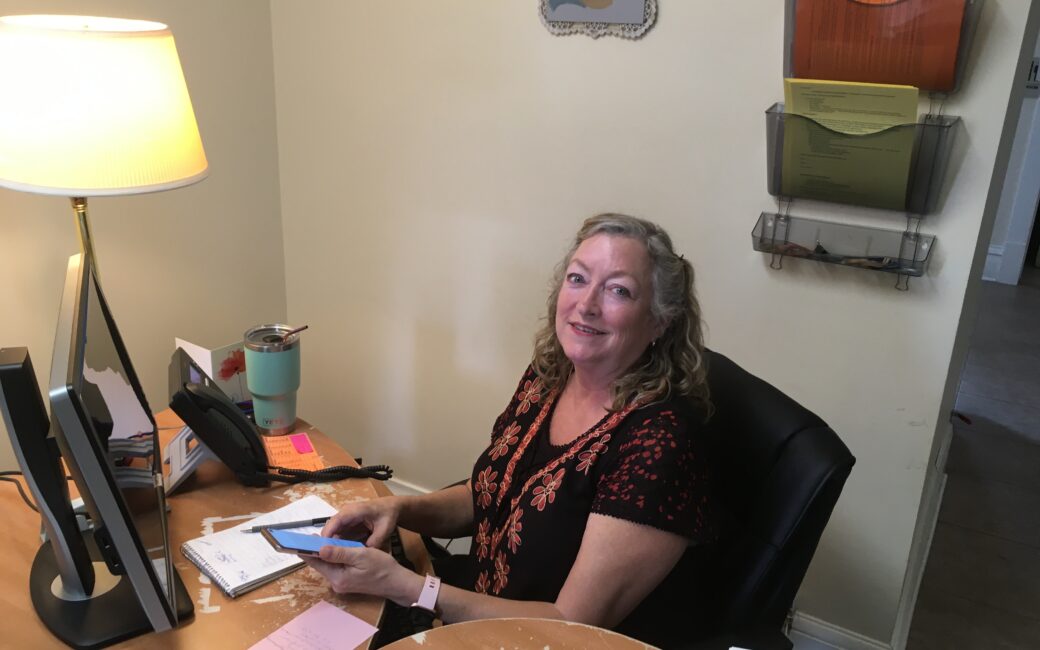When you come through the door at a Walk-In clinic, the first person you might see is volunteer receptionist Suzy T.
A retired social worker, Suzy has seen many people through all kinds of mental health issues, as well as struggles with domestic violence, homelessness and substance abuse. She knows each visitor at Walk-In might be nervous about seeking help.
“A lot people walk in with an energy and feel that is tentative. I use a warm tone and try to help them feel welcome and comfortable,” Suzy says. When the visitor says they want to see a counselor, she might say, “You’re in the right place, because we have lots of counselors here.” Then she will offer them coffee or tea and ask if they have any questions about the free, anonymous, no-appointment counseling.
Suzy’s thirty-two-year career began with a master’s in social work and was spent mostly at the county helping people stabilize during crises – a theme that carried through all of her work. Suzy’s previous volunteer stints included being a counselor at Walk-In and being an advocate for victims of domestic violence.
“At the domestic abuse service center (at Hennepin County), a person seeking an Order for Protection (OFP) would see the advocate first,” Suzy recalls. During her time there, the service center helped make it easier for victims to get such an order. “It used to be that you had to go to 11 different offices to get an OFP. It was next to impossible. At the service center, the advocates were there, and the people that write the court orders, and people from the city attorney’s office, and child care. We could take them upstairs to the judge, and a week later, they would go to a hearing.”
Suzy especially values getting systems to work better. After retiring, Suzy began to volunteer with her church as an observer in Federal immigration court. “We were there to make sure people understood their rights, that their rights were being respected, and that interpreters were on hand … We reported back on what we saw,” she said.
When the pandemic shutdown ended that role, Suzy looked anew for volunteer work and saw a notice in the newspaper about a need for receptionists at Walk-In. “I got very excited because this was something I could do to have human contact and contribute to the planet.” As a retired person living alone, she had already invited two friends to be in her pandemic “bubble,” and she relished the opportunity for meaningful work as well.
“Walk-In provides an invaluable service,” she says. ”There are so many people who slip through the cracks, and there are so many needs in mental health. Walk-In’s mission and success are phenomenal … I feel good when I see people leaving a clinic feeling so much better than when they arrived.”
The people who volunteer at Walk-In are fantastic,” Suzy recounts. Clinic teams include both very experienced counselors and advanced graduate students in social work, psychology and marriage and family therapy. After each clinic, they discuss the presenting issues of the day and how best to address them. “It’s nice to see the exchange of thoughts – the older counselors learn from the students about what is being taught today, and the young people absorb all this wisdom and experience. It’s a nice system for everybody.”
At a recent in-person clinic that was unusually busy, Suzy found that the clinic team was able to help each client despite having to hold shorter sessions in order to see everyone seeking help. “They just got into a groove. And every client left feeling better.”
Suzy hopes to be at Walk-In for some time to come. “I love coming here,” she says. “Every time I come, it feels like getting a big hug. It’s a safe and welcoming space.”

